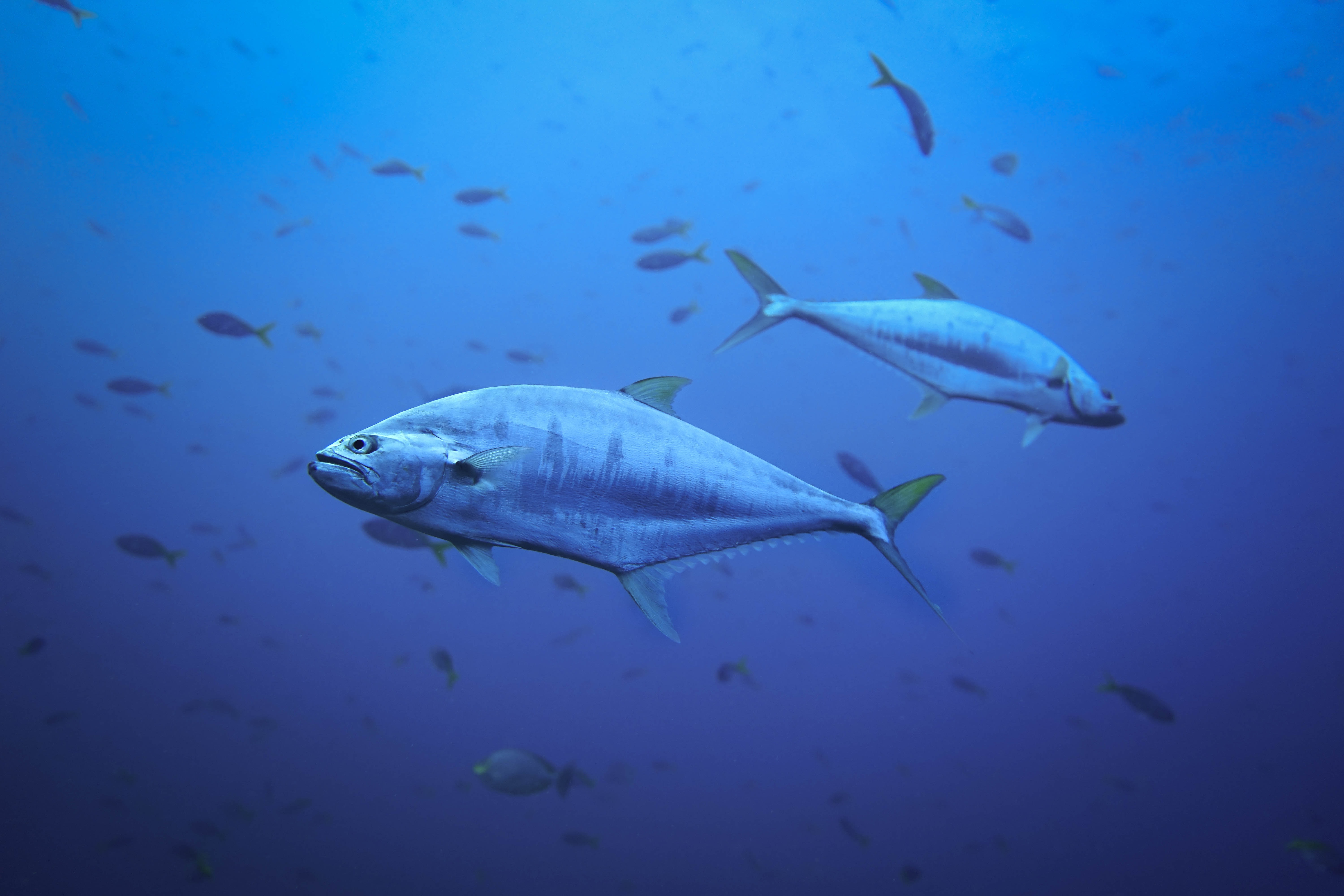
A fish that dies naturally in the ocean sinks to the depths, taking with it all the carbon it contains. Yet, when a fish is caught, most of this carbon is released into the atmosphere as CO2.
An international research consortium including scientists from UC Santa Barbara has estimated that because of this overlooked phenomenon, carbon emissions from fishing are actually 25% higher than what up to now was considered from fuel consumption alone. What’s more, part of the carbon extracted from the oceans is in areas where fishing is not economically profitable in the absence of government subsidies. This study is published in Science Advances.
Carbon is a major component in the molecules that make up living tissue. Large fish like tuna, sharks and swordfish are composed of 10 to 15% carbon. When they die, they quickly sink to the deep sea. As a result, most of the carbon they contain is sequestered for thousands or even millions of years. They are therefore literal carbon sinks, the size of which has never been estimated before.
This natural phenomenon, a blue carbon pump, has been greatly disrupted by industrial fishing.

“When we catch fish for our consumption, we also extract the carbon in their bodies, a fraction of which would have naturally sunk to the bottom of the ocean where it would have otherwise stayed, sequestered for many years,” said coauthor Juan Mayorga, a marine data scientist at UC Santa Barbara’s Environmental Market Solutions Lab.
Scientists had never estimated the amount of carbon extracted and released into the atmosphere as a result of fishing. “This is a step forward toward more holistic, science-based assessments of the status of fisheries management,” Mayorga said, “and opens the door to innovative financing models including tapping into carbon markets.”
Industrial fishing would therefore emit a double amount of CO2 into the atmosphere: not only do the boats massively emit greenhouse gases by consuming fuel oil, but in addition, by extracting fish from the sea, they release CO2 which would otherwise remain captive in the ocean.
"This is the first time that we have estimated the quantity of this ‘blue carbon’ that is released into the atmosphere by fishing," explained coauthor David Mouillot, a professor at the University of Montpellier. This estimate is far from negligible since researchers consider this carbon sequestration deficit in the deep ocean would represent more than 25% of the previous carbon balance of industrial fishing activities.
Further reading:
Fishing's Hidden Carbon Footprint, The UCSB Current
Let more big fish sink: Fisheries prevent blue carbon sequestration—half in unprofitable areas, Science Advances, Vol. 6 No. 44, 28 Oct 2020



